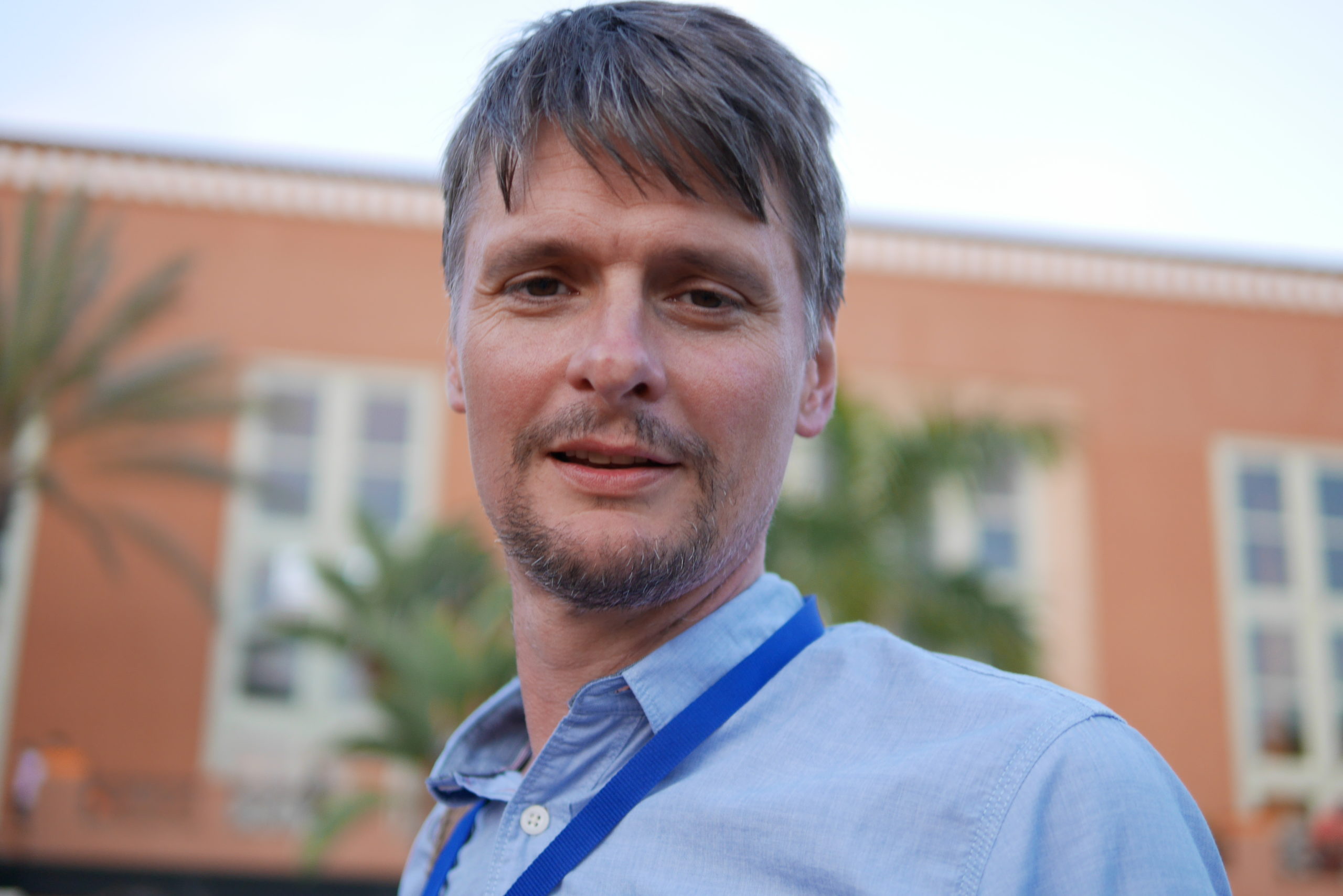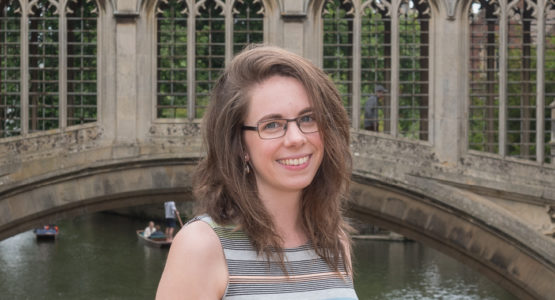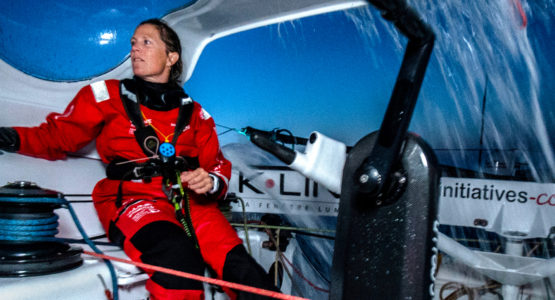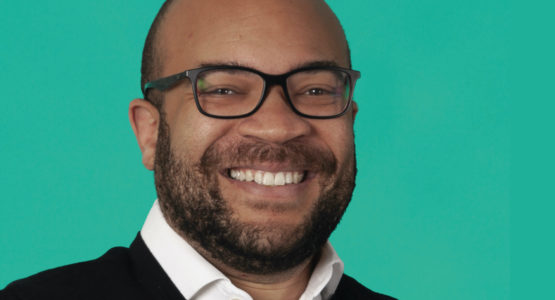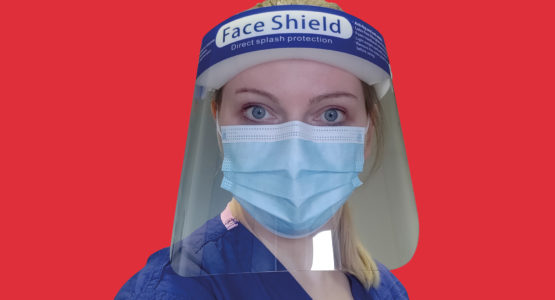A keen cyclist and collector of old computers, Neil Lawrence (1998) was the first PhD student to work on machine learning at the Cambridge Computer Lab, and he is now the University’s first DeepMind Professor of Machine Learning.
At school I did a psychometric test on an Acorn BBC computer, which recommended I work in something like fifteen different types of engineering. This reinforced my teenage career plans, and I completed my undergraduate degree in Mechanical Engineering at the University of Southampton.
As a student I was passionate about cars, and at university I bought the MGB GT that I still have today. I spent my summer in Skelmersdale working for AlliedSignal designing turbocharger bearings, and I centred my final-year project on eliminating the vibrations that made early turbodiesels so noisy.
I began my career on the oil rigs working for Schlumberger as a wireline logging engineer. I’d hoped to be sent on adventurous jobs in Colombia and Nigeria, but I ended up in Morecambe and Great Yarmouth. The job was lucrative, hard and hazardous. Field engineers operate radioactive tools and explosives in one of the most dangerous working environments, and I developed a great respect for people and the lives they lead.
I began coding neural networks when I wasn’t needed on the drill floor, and giving up the large salary to do my PhD at Cambridge was one of the best decisions I ever made. My career in machine learning has taken me to both Colombia and Nigeria – and teaching data science in those environments brings me closer to local communities than I would have been in one of Schlumberger’s remote bases.
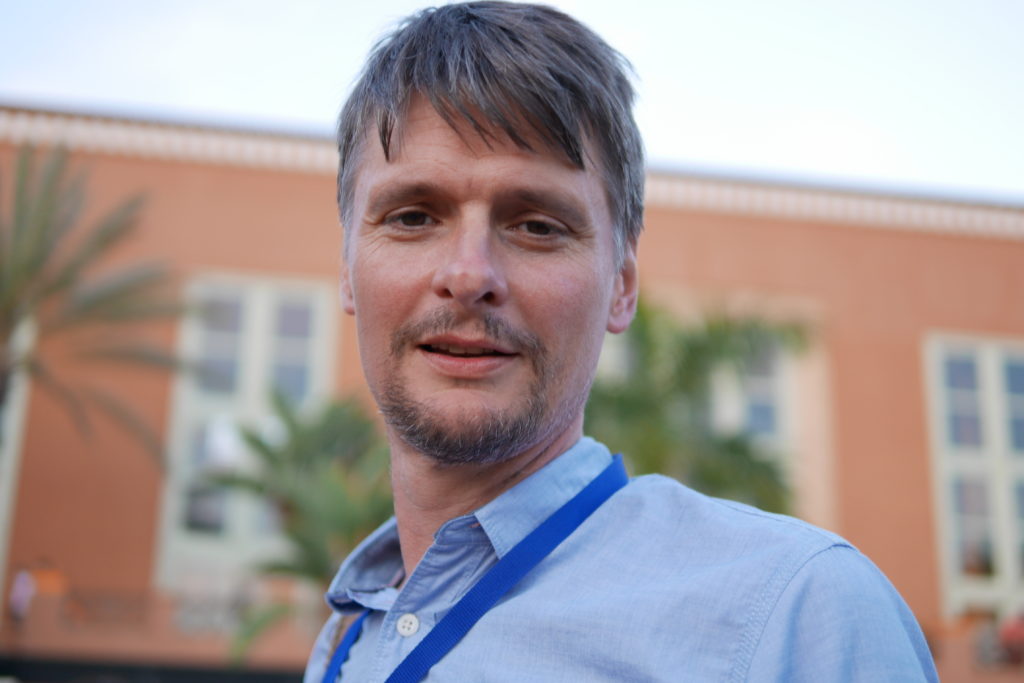
I first came to Cambridge academically to attend a two-week Summer School at the Newton Institute on machine learning in 1997. My friends and I played impromptu games of football on St John’s playing field and the groundsman kept kicking us out. That’s one thing that influenced me to choose St John’s when I applied for my PhD: I wanted to play there legally!
During my PhD I was the first student in the computer lab to study machine learning. I wanted a career in industry applying the lessons I’d learnt in my PhD, but 20 years ago few companies were interested. I spent a year with Microsoft Research and then took up a lectureship in Sheffield, where my wife was a postdoc in computational biology.
I loved the people and the hills in Sheffield, and I cycled and fell ran in the Peak District. One of my favourite memories is sitting around a table in Edale Village Hall with Jasmin Paris after the 2017 Marsden-Edale race, which I couldn’t finish because my legs became numb from the knees down after running in the melt water. My wife and I lived and worked in Sheffield for 16 years, but getting research funding for machine learning was hard, and by 2015 the team I’d built was starting to break up.
People can get overawed by machine-learning ideas and view AI as a panacea
I founded a small company called Inferentia with Eric Bridgstock, who was the sort of engineer I’d always dreamed of being when I was young: like a modern Brunel, except his focus was on plastic pipe joints. Our company was bought by Amazon, and when asked where we’d like to locate I pushed for an office in Cambridge – it had been home before, and there are many great machine learning people here, including Zoubin Ghaharamani.
A lot of my work at Amazon involved managing expectations. The company is well positioned to benefit from all the advances in AI, whether that’s intelligent agents, driverless vehicles or robot arms for packaging, but there’s a world of difference between AI in an academic setting and deploying these systems in real warehouses and on real roads. Even in big tech companies such as Amazon, people can get overawed by machine-learning ideas and view AI as a panacea. In reality it is a technology with its own limitations, and the effort that needs to be put into the data quality is often underestimated.
I learnt an enormous amount about leadership, decision-making and running a business at Amazon. But my dream job became available as the DeepMind Professor of Machine Learning in the Cambridge Computer Lab. It felt extraordinary to have gone from the first PhD student to work on machine learning there to the first endowed Professor of Machine Learning.
The opportunities to influence from academia are far greater than from industry. You’re surrounded by world-leading researchers, and you constantly influence through teaching. My day job still relies on my technical expertise, but much of my time is spent on executive education, AI policy, data governance and convening interdisciplinary groups.
I look forward to when we expect machine learning technology to simply do its job
I’ve been lucky to work alongside some of my historical heroes, or at least have dinner with them. The Centre for Computing History provided all the machines for the BBC drama Micro Men, which tells the story of Herman Hauser, Steve Furber (1971) and Sophie Wilson at Acorn. I’ve worked alongside Steve, had dinner with Herman and am hoping to bump into Sophie now that I live in Cambridge.
To relax I take long cycle rides. Academics can be far too cloistered, and I love the diverse cross-section of people that cycling attracts. I’m also fascinated by the history of technology. I had a collection of old computers, but when we moved to Cambridge my wife suggested I donate them to the city’s Centre for Computing History, where I used to visit them regularly pre-pandemic.
When COVID-19 first impacted our lives, I was able to put my skills to good use by convening the DELVE group for the Royal Society. Now we are bringing the same spirit of collaboration to our work with the Accelerate Programme for AI in Science and the Data Trusts Initiative for developing institutions for equitable data governance.
I want to live in a world where we don’t talk about machine learning and AI. In the same way we don’t talk about computers today because they are integrated in our everyday lives, I look forward to when we expect machine learning technology to simply do its job.
Written by
After reading Mechanical Engineering at the University of Southampton, Neil began work as a wireline logging engineer for Schlumberger. He than came to St John’s for a PhD, where he was the first student in the computer lab to study machine learning. His career has spanned both academia and industry: he lectured in Sheffield, worked for Amazon, and is now the University of Cambridge’s first DeepMind Professor of Machine Learning.


